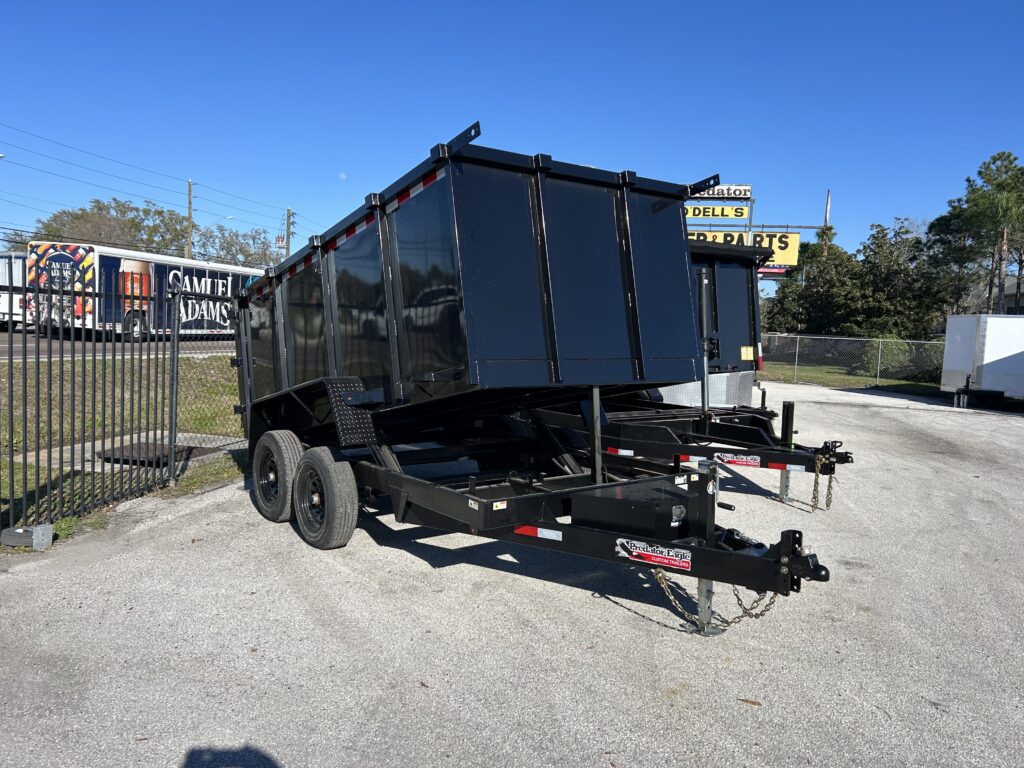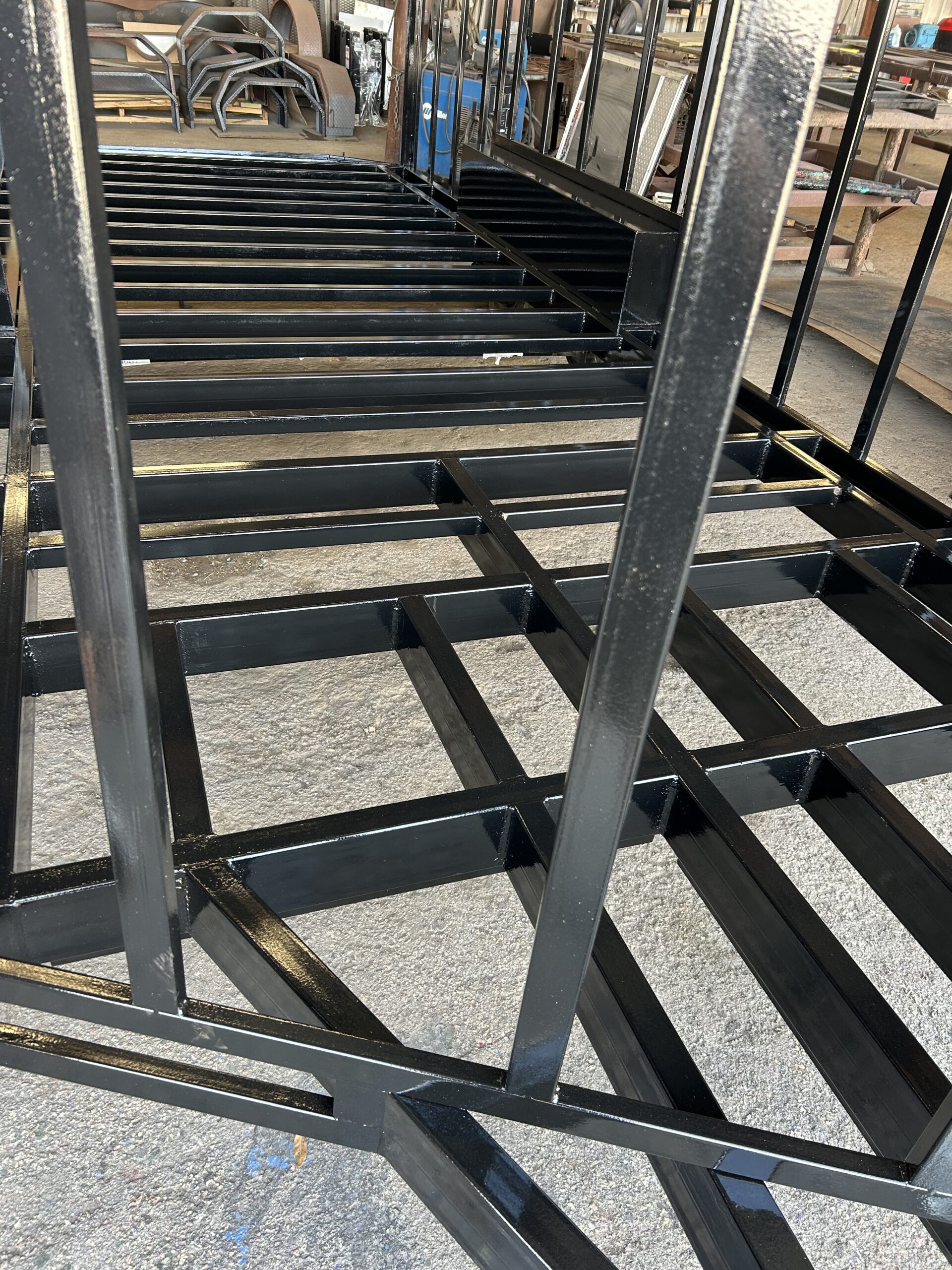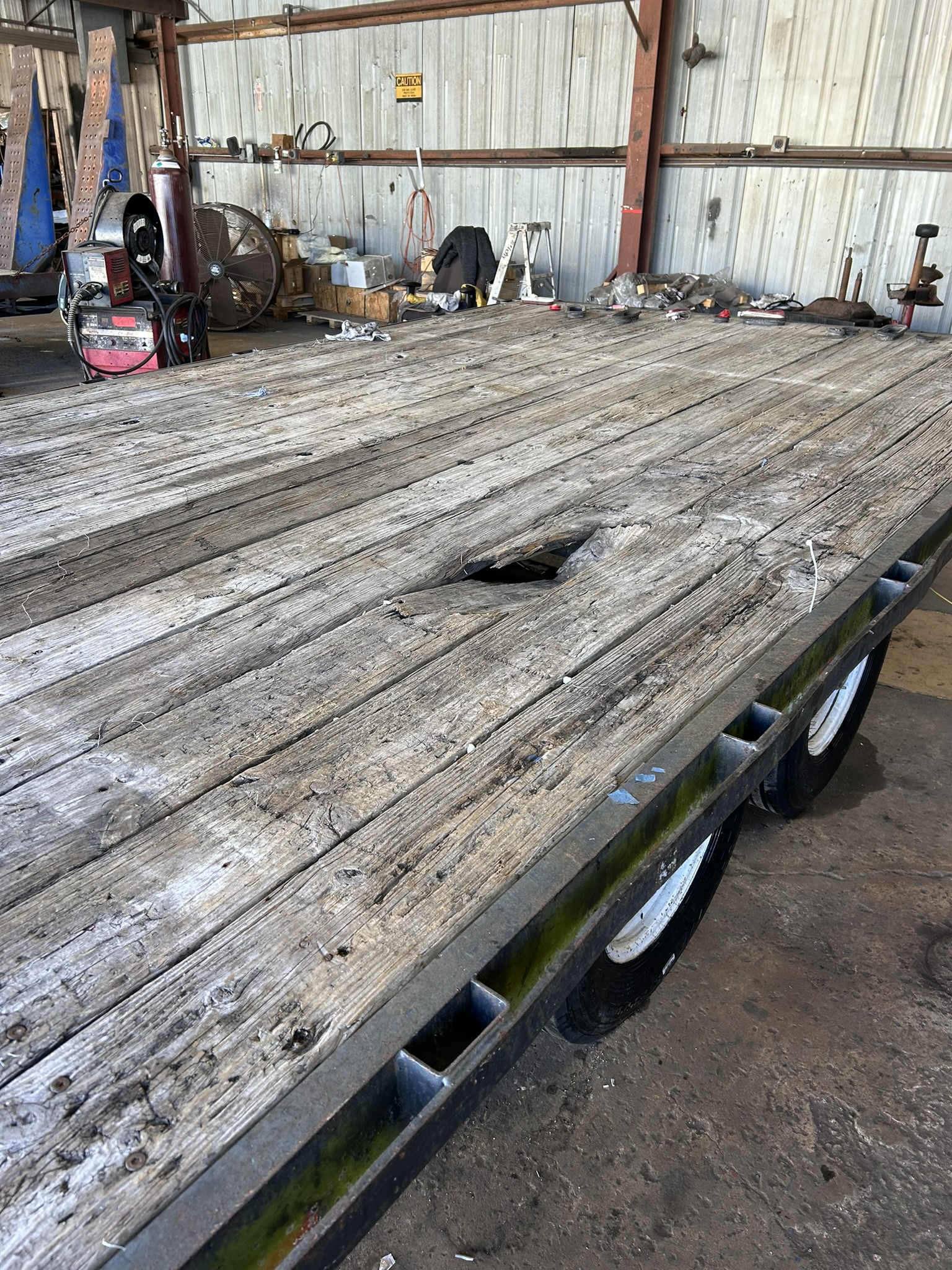8 Common Mistakes When Buying a Trailer
Many people make mistakes when buying a trailer, the most common being one that will not fit their future needs. They buy the trailer to fit the immediate application and forget that the trailer will last years and they may have additional one time or small uses to consider.
1. Getting a Trailer Without Enough Capacity
Trailers are rated for total capacity including the weight of a trailer. Some trailers can weigh a lot especially cargo trailers and many people forget to subtract that number. For instance a 8 x 20 cargo trailer can weigh 3900 lbs and with 7k gvwr capacity it can only handle 2100 lbs of cargo. When you overload this trailer you will be at risk for losing wheels and expensive repair costs, which helps the repair shops but not the trailer owner.
Next a lot of customers have no idea that occasionally they may use the trailer for a different use. Like helping a friend with a remodeling job or picking up some equipment to work on the house. Having the extra capacity will make these jobs possible.
Longevity. If you have a trailer that is at its maximum recommended load it will often go through more tires and not last as long as one that is operated under the maximum load capacity. We always recommend getting at least 20% more capacity than you think you need. This will allow for your trailering needs to grow over time without needed a new trailer.

2. Getting the Wrong Size Trailer (Length and Width)
Remember that just like maximum weight capacity getting a trailer a few feet bigger than what you need can often make the difference between the trailer working and not working for an application. Many customers think an extra 2 feet will make the trailer drive much harder but in reality that is not true. We very rarely see people buy a smaller trailer but we often see people trade up for a bigger one. Customers that have multiple trailers will often get a trailer just to fit a single application but if this is your only trailer we would recommend getting a trailer bigger than what you need so it can accommodate your future needs.
3. Getting a Standard Stock Trailer
If you are going to use the trailer a lot a standard trailer is rarely for you. A standard trailer is setup for someone that is not going to use it a lot in most cases. Companies will stock a cheap trailer so it can attract home owners and people that do not use the trailer much. For example standard trailers always come with a 2k jack that will break extremely fast. They come with low capacity axles, a very light weight door, spring axles over torsion, cheap tires, a short tongue that makes driving difficult, and multi piece roofs. Often stock trailers are built with the left over material (scrap) from quality custom builds.
Getting a standard trailer can work for you if you are new to trailering and do not plan on using it every day. If you plan to trailer a lot it is recommended that you build a trailer that fits your exact needs. You may invest a little more at the start but quality costs less over time.
4. Getting a Trailer From a Dealer Far Away From Your Location
When you drive several hundred miles to get a trailer you often get into a bad situation. Often the trailer you thought you were getting is not the trailer they end up giving you. Also if anything is wrong with the trailer the dealer will often make you bring it back for warranty work. Getting a low price trailer from a faraway dealer will often lead to headache if it needs a lot of warranty work which is often the case with cheap trailers.
5. Enclosed vs. Open Trailer
Often investing a little more money for an enclosed trailer is well worth it for many customers. Especially when you consider rain and weather can play a big factor in moving items in the summer for instance. Enclosed trailers do cost a little more but the utility difference could well be worth it.
6. Angle vs. Tube Steel Construction
When you get a lower quality trailer they often will use angle steel. Angle steel will work for the manufacturers recommendations but it will not last as long. Angle steel can often fail if you load the trailer with force. The trailer for instance may be able to handle 3000lbs but can it handle the load anywhere or would it have to be evenly distributed over the trailer. This becomes a big issue with commercial applications when a heavy piece of equipment is hauled. If the equipment is under the max load but it is smaller it can damage the floor and the trailer. Getting a trailer build with tube steel will provide a lot more options for loading smaller heavier items. If you do not have a quality trailer it for example may only be able to hold the maximum load directly over the axles.

7. Cross Member Spacing
The cross member spacing allows the trailer to be loaded less evenly. Common trailers are on 24 inch centers. Getting spacing at 12 inches can be recommended if you plan to have a large piece of equipment or use the trailer often and want it to last.
8. Resale and Trade In Value
Getting a more common size trailer often will allow it to sell much quicker. For instance getting a 6 x 12 trailer will be much easier to sell than a 5 x 8 trailer. So you will come out a lot better investing just a few hundred more for the bigger trailer when it is time to sell.
In conclusion never be scared to ask questions and think about your longer term trailer needs. When you get your trailer you will soon realize how many new friends that you have that want to borrow it. Your family and friends will appreciate a little extra capacity…

